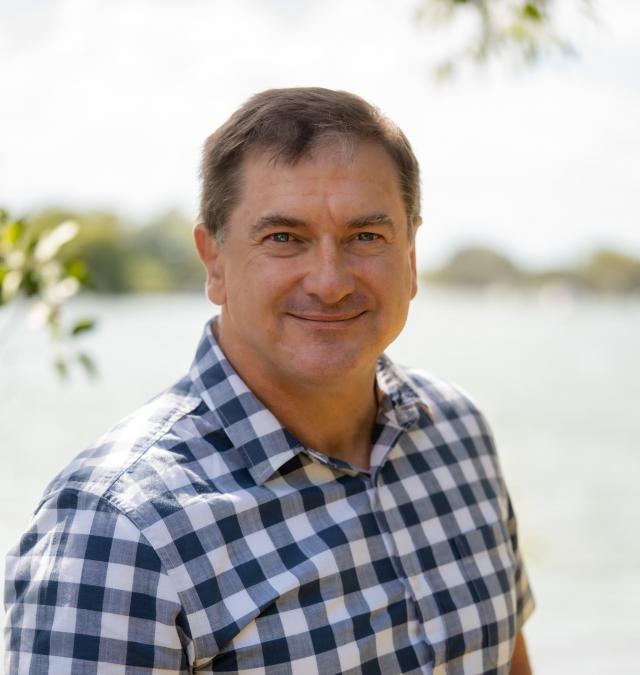Asked to contribute to our regular feature in which community leaders are asked to share their voting intentions in the coming referendum on the Indigenous Voice to Parliament, Federal MP for Wide Bay (which includes Noosa) LLEW O’BRIEN referred Noosa Today to his speech to the House of Representatives on 24 May. What follows are edited extracts:
I rise to speak on the Constitution Alteration (Aboriginal and Torres
Strait Islander Voice) 2023… The bill confirms that we will be asked if we want to permanently include a race-based agency called the Voice that may make representation to parliament and executive government on matters relating to Aboriginal and Torres Strait Islander Australians. Both sides of the debate agree that this is not an insignificant change and that either a yes or a no outcome will have an effect on our nation.
The passing of this bill signals the referendum campaign’s start proper—as I suppose you could describe it— but it also signals the end of Prime Minister Albanese’s highly selective process to formulate the constitutional change being proposed. It is a process that has involved handpicked academics and professional elites, ignoring the fact that every Australian owns an equal share of our Constitution and that any change should be shaped
by all its citizens.
Referendums have typically involved all of us having a very inclusive conversation—a national conversation — about the changes proposed. This has involved constitutional conventions open to citizens, like the one that we had in order to examine whether we wanted to be a republic or not… Labor’s approach to this referendum has been very different. There won’t be any constitutional convention for all Australians, and there was an attempt to kill off the ‘yes’ and ‘no’ pamphlet. Not only does Prime Minister Albanese’s our-way-or-the-highway approach go against long-held agreement that a referendum of this nature must have bipartisan support, it has also contributed to an environment of nastiness, where we’ve seen insults and accusations flourish…
Voting ‘no’ at this referendum doesn’t mean you’re a racist or dispassionate about closing the gaps between disadvantaged Aboriginal Australians and mainstream Australia. Indeed, many Aboriginal Australians will be voting ‘no’….
I haven’t come to my position lightly or due to the position of my political party to say ‘no’. Coming to my position has been done with an open mind and an open heart and a genuine desire to see positive change. But there are multiple reasons why I can’t support this proposal.
Firstly, there is a difference between constitutional recognition and the structural change the government proposes. I’m open to acknowledging in our Constitution that before colonisation Australia was occupied by people who also migrated here but many thousands of years earlier. Aboriginal Australians hold an important and unique place in our nation’s identity, and their identity should be recognised and celebrated fittingly. But this proposal goes far beyond constitutional recognition as the average Australian would define it.
This proposal is designed to substantively change the Constitution and the structure of government. Those are words from the Uluru statement. As well as constitutional recognition, the statement speaks of self-determination and its being achieved through constitutional change… My view of self-determination is that it happens very much at the level of self, not of government. When a person chooses the right path and takes positive actions to achieve the future they hope for, they practise self determination…
The Uluru statement speaks of high rates of incarceration within the Aboriginal
population, and no doubt the Voice would be called upon to advise government on solutions to these terrible statistics. I believe the answer to lowering these rates doesn’t lie within a ‘yes’ vote to enshrine within our Constitution a new bureaucracy; it is held within each individual.
Much of the concerns on the ‘no’ side of the debate revolve around the scope of the Voice, and particularly its role in providing advice to executive government and what is meant by ‘matters relating to Aboriginal and Torres Strait Islander people’. It’s a simple fact that only the High Court will be able to resolve these questions raised because of the very broad and vague nature of this set of words. ‘Executive government’ is quite a technical term
that includes more than just the Prime Minister and his mates in cabinet. ‘Executive government’ also includes the entire Commonwealth bureaucracy.
Another relevant concern about the Voice is that it breaches human rights principles by creating a class of citizenship with greater rights than others. Without limiting the Voice’s advice to specific or special laws with respect to Aboriginal and Torres Strait Islander people, it risks creating a system where laws that apply equally to Aboriginal and non-Aboriginal Australians are still within the scope of the Voice. This will create a system of governance that embraces racial preference where non-Aboriginal Australians won’t have equal treatment by government in matters that are not specific to Aboriginal Australians alone. While we must do all we can to take practical action to close gaps between mainstream Australia and disadvantaged Aboriginal and Torres Strait Islander Australians, for me, it doesn’t extend to permanently enshrining a racial divide and inequality in the Constitution which I believe has the potential to do more harm through disunity than good…
That leads me to what I believe is the most substantial reason this proposal should not be supported, and that is its lack of substance. At no time has it been demonstrated how the Voice will make real improvements to the lives of disadvantaged Aboriginal Australians…
As it stands today, the Constitution treats every Australian citizen equally. It is everyone’s Constitution, and we are all brothers and sisters enjoying that equal citizenship. But we must also remember that this is the Constitution we will pass on to future generations of Australians. My conscience tells me I have to make decisions that will unite our children, not divide them, into the future. That is why I’m saying no to this legislation… and I’ll be voting no to the Voice.
NOTE: Noosa Today has not verified the contributed content above. All articles appearing under this banner can be fact-checked at these websites:
www.abc.net.au/news/2023-07-19/fact-check-yes-no-campaign-pamphlets-








